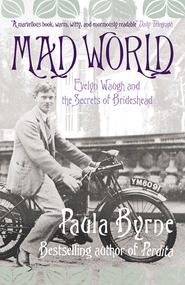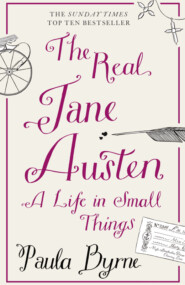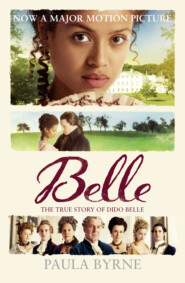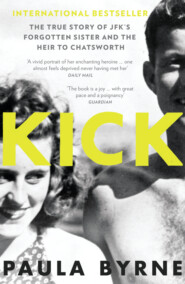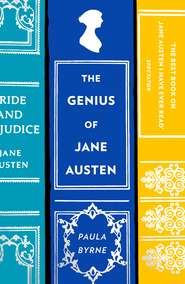По всем вопросам обращайтесь на: info@litportal.ru
(©) 2003-2024.
✖
Perdita: The Life of Mary Robinson
Настройки чтения
Размер шрифта
Высота строк
Поля
(#litres_trial_promo) But when the bride left the church for the wedding breakfast at a friend’s house, she changed her plain dress for something altogether more glamorous. Her gown was muslin, with a matching white sarsenet scarf-cloak; she wore a chip hat with silk ribbons and satin slippers embroidered with silver thread. The change of costume is symbolic of Mary’s struggle to reconcile the contrasting aspects of her character. On the one hand she wanted to be seen as a prudish Quaker, a sexual innocent almost forced into an arranged marriage, but on the other she wanted to be viewed as a beautiful and fashionable bride, decked out in white and silver.
Mary always insisted that her marriage was not a love match. She was deeply romantic and cherished hopes of a soul mate. Robinson was not the man. Of her feelings for her future husband, she wrote, ‘I knew not the sensation of any sentiment beyond that of esteem; love was still a stranger to my bosom.’
(#litres_trial_promo) But according to the Memoirs, it was not another, more dashing suitor that she thought of as she spoke her marriage vows kneeling at the altar of the church of St Martin-in-the-Fields. Her thoughts wandered instead to the theatrical career that she was sacrificing, to the glimmer of fame, and the lost opportunity of an independent livelihood.
CHAPTER 3 Wales (#ulink_b982e891-860e-5e38-8291-bef9648225b2)
There is nothing in life so difficult as to acquire the art of making time pass tolerably in the country.
Mary Robinson, The Widow
The wedding party of four set out in a phaeton and a post chaise. They stopped for the night at an inn near Maldenhead. Robinson was accompanied by an old school friend, Hanway Balack, who kept the groom in good cheer whilst the young bride Mary walked in the gardens with her mother, weeping and describing herself as ‘the most wretched of mortals’. She confessed to Hester that although she esteemed Mr Robinson she did not feel for him that ‘warm and powerful union of soul’ which she felt was indispensable for marriage.
(#litres_trial_promo)
Mary was already beginning to regret the clandestine quality of the marriage. During the onward journey to Henley-on-Thames the following day, Hanway had quoted facetiously from Isaac Bickerstaff’s comic opera The Padlock of 1768, then in ‘high celebrity’, which depicted the insecurities of an aged bachelor called Don Diego. His teasing made her painfully aware of the precariousness of her position: Robinson had not told even the friend who was accompanying them on the honeymoon that they were married. Ironically, though, Hanway was to remain a close and loyal friend to Mary throughout her life, long after Robinson had disappeared from it.
(#ulink_a3b7788a-04f4-5ed6-8bb3-0995d3347a5c)
The honeymoon by the river at Henley lasted for ten days. Mary had the painful task of sending Garrick the news that she was married and was therefore relinquishing her stage career. When the couple returned to London, it was to separate residences. Robinson returned to his job in Chancery Lane, while Mary and her mother hired an elegant house in Great Queen Street in fashionable Lincoln’s Inn Fields, backing onto Chancery Lane. Robinson stuck to his insistence that the marriage should be kept secret until he had come of age and finished his articles. Whilst he was busy in chambers, Mary grew bored and found herself a young female companion, who shared her romantic disposition. The girls spent hours wandering in Westminster Abbey, peering at its Gothic windows and listening to the echoes of their footsteps vibrating along the aisles. Mary felt transported back to her childhood in Bristol Minster.
Hester became anxious about her new son-in-law’s continued desire for secrecy. She began to regret the part she had played in promoting the marriage. Then she learnt to her dismay that Robinson had been spinning a web of lies from the very start. He had claimed that his inheritance would fall due when he came of age, but in fact he was already 21. And he had much further to go in his training than he had pretended. Worst of all, Hester discovered the true story of Robinson’s origins. He was not the legitimate heir of his uncle, Thomas Harris, and heir presumptive to a ‘handsome fortune and an estate in South Wales’. He was actually Harris’s illegitimate son – according to one source, the result of a fling with a laundress. Furthermore, with an industrious and ambitious older brother in the picture (whom Robinson had conveniently forgotten to mention), his financial prospects were dim. It was extremely unlikely that he would inherit anything at all from his father. He also owed a lot of money.
Mary, meanwhile, unexpectedly met Garrick walking in a London street. This was the first time she had seen him since informing him by letter of her marriage. She was highly sensible that he had not yielded any return on his protégée and that she had not told him of her defection face to face. After all, she had been trained by the greatest actor of the age and he was not accustomed to having his time wasted by fickle would-be-actresses who changed course at the final hurdle. To his infinite credit and to her utmost relief, he greeted her warmly and congratulated her on her marriage. Mary’s charm and beauty had won him over again. She does not record what she said to him at this meeting. Perhaps she intimated to him, as she did in her Memoirs, that she had been persuaded to marry against her will, and that she deeply regretted the sacrifice of her career. However she managed it – and David Garrick was not the easiest person in the world to sweet-talk – he continued to be a friend and supporter. Mary had a unique talent for maintaining loyal, protective friends, most of whom fell headlong in love with her wit and charm.
Garrick’s knowledge of Mary’s marriage put increasing pressure on Robinson to make the union public. Every day that passed with a disavowal from him put Hester under increasing strain, and Mary’s reputation at greater risk. She could fall pregnant at any time, a plight that Garrick and George Colman the Elder had exploited in their popular comedy of 1766 The Clandestine Marriage. In this play, the lovely young heroine Fanny Sterling is persuaded by her new husband, against her better judgement, to keep her clandestine marriage secret, even though she is heavily pregnant. Despite her condition, she is pursued by many suitors, especially the lecherous aristocrat Lord Ogleby. Mary hints at a similar dilemma in her Memoirs, though it was her mother who was furious with Thomas: ‘The reputation of a darling child, she alleged, was at stake; and though during a few weeks the world might have been kept in ignorance of my marriage, some circumstances that had transpired now rendered an immediate disclosure absolutely necessary.’
(#litres_trial_promo) There is, however, no evidence that Mary was indeed pregnant at this time. Her daughter was born a full year later.
Perhaps this was an example of Mary’s penchant in her Memoirs for conflating fact and fiction, drawing upon a literary cliché of secret unions and swollen stomachs. She was writing with the memory of having drawn attention from the press for playing the part of the pregnant Fanny Sterling in The Clandestine Marriage whilst she herself was heavily pregnant with her second child. Another possibility is, of course, that Mary and her mother used a feigned pregnancy as a final card to force Thomas’s hand and frighten him into submission. If that was the trick, it seems to have worked: Hester confronted her son-in-law and demanded that he make the marriage public before Mary’s reputation was irrevocably damaged.
Finding Hester inexorable, Robinson resolved to leave for South Wales to avow his marriage and present his young bride to his ‘uncle’ – he still stubbornly disputed the fact of his illegitimacy, though his secret was now out. Hester insisted on travelling with the couple as far as Bristol, ostensibly in order to visit her old friends in the city, but no doubt also to keep an eye on developments. In the absence of her husband, she was determined to protect her daughter’s honour. The journey to Bristol was enlivened by a stopover in which they visited the Oxford colleges and took a guided tour of Blenheim Palace – ‘with the hope of soothing my mother’s resentment, and exhilarating my spirits, which were now perpetually dejected’.
(#litres_trial_promo)
Robinson went on alone from Bristol to the family seat in Tregunter, Wales. He assured his wife that he would be smoothing the way for her eventual cordial reception at Tregunter House, but, in truth, neither was at all confident that Thomas Harris would sanction the union. On the surface, it seemed a very peculiar marriage. Thomas and Mary had now been married for six months without living together under the same roof. Now Mary was being left again so that Robinson could persuade his father, from whom he had been estranged for some time, to give his blessing to a marriage without prospects or money. It was an inauspicious start to domestic life. Still, they both wanted money and status, and wanted to live well. Mary was prepared to let him go to do his best to win round his father. She insists that although she did not feel overwhelmed with love, she was nevertheless attached ‘to the interest as well as to the person of my husband’.
(#litres_trial_promo) Though she later came to despise him, she was aware of his qualities, his easy-going temperament and affability.
Nor was she willing to sit and mope whilst their future hung in the balance. She was gratified by the homecoming she received at Bristol. News had spread that Mary Darby had made a good marriage ‘to a young man of considerable expectations’ and she was once again ‘received as the daughter of Mr Darby’. Given her father’s marital infidelity and her husband’s true circumstances, she saw the irony in the way that she was deriving respectability from her status as a wife and a daughter. She was struck by the numerous invitations she now received, in stark contrast to the time when she and her mother had left Bristol in humiliation: ‘I found that fortune was, to common minds, a never-failing passport.’
(#litres_trial_promo) She was in a sense returning in triumph, restoring her mother and herself to the respectability that had been lost when Nicholas Darby walked out. Friends who now greeted Hester and Mary warmly had turned their backs when they had most needed friendship. They could turn again. Mary rarely forgot a social slight, and felt it keenly if someone wronged her – a reaction which perhaps stemmed from those Bristol years when the family had endured social ostracism.
Her return to the place of her birth affected her deeply. She took a solitary walk back to the scenes of her childhood: the schoolhouse, the green, the tombs of her ancestors. In the minster she once more crept under the wings of the huge brass eagle in the middle aisle, just as she had done as a child. ‘Language cannot describe the sort of sensation’ which she felt when she suddenly heard the peal of the organ ringing out as it had in her youth. But now the family home was a ruin: ‘The nursery windows were dim, and shattered; the house was sinking to decay.’ She remembered how she had walked in the cloisters that linked her old home to the minster: ‘“Here,” said I, “did my infant feet pace to and fro” … On those dark and winding steps, did I sit and listen to the full-toned organ, the loud anthem, and the bell, which called the parishioners to prayer.’
(#litres_trial_promo) As she re-entered the cathedral, she read and reread the monumental inscriptions, finding the grave of the actor William Powell, whose Lear had been her first experience of theatre. And she dropped a tear on the stone tablet that commemorated an old family friend. As so often in the Memoirs, this account is embellished with many a literary flourish, but there is no reason to doubt that when Mary returned to Bristol as Mrs Robinson she must have felt that her childhood was well and truly over, her innocence lost.
Her melancholy was no doubt exacerbated by the uncertainty over her future. Everything depended upon Thomas Harris’s generosity. Perhaps she even feared that her husband would abscond. Hope returned when Robinson sent a letter from Tregunter relating that his ‘uncle seemed disposed to act handsomely’. Mary learned that at first Robinson was too frightened to tell his father that he was already married, but upon revealing the truth, Harris expressed the hope that she was neither too young nor too beautiful, since ‘beauty, without money, is but a dangerous sort of portion’. Still, Harris had grudgingly accepted the inevitable: ‘If the thing is done, it cannot be undone.’
(#litres_trial_promo) He agreed to a visit. Robinson duly wrote with the news, instructing Mary to obtain funds for the journey by requesting a loan from one of his friends back in London – a man she had sometimes seen in his company.
‘One or two letters passed on this subject,’ she writes in the Memoirs. And then her husband returned in order to escort her to Wales. The man to whom she had written was the notorious John King, generally known as ‘Jew’ King, a young and ambitious money-broker. In the Memoirs Mary claims disingenuously that she was ‘an entire stranger to the transaction which rendered him the temporary source of my husband’s finances’.
(#litres_trial_promo) She represents herself as the very picture of innocence and passivity. The emphasis on her melancholy mood and her recollections of childhood as she waited in Bristol draws the reader away from any thought of her possible implication in her new husband’s messy financial affairs.
That phrase ‘one or two letters’ is, however, economical with the truth. To a greater extent than at any other point in the Memoirs, Mary was whitewashing her own past. The real story of her involvement with ‘Jew’ King reveals that she was by no means the naive newlywed she would have her readers believe in.
At the height of her fame, Mary was notorious not only for the love letters sent to her from the Prince of Wales under the signature ‘Florizel’, but also for a much sleazier correspondence with King. In 1781, as part of a concerted press campaign to blacken her name, there appeared a slim quarto volume, published at two shillings, which purported to contain copies of real letters that passed between Mrs Robinson and a ‘certain Israelite’ between 21 September and 30 November 1773. Her letters were all dated from Bristol and addressed to King in London. In one of them, dated 9 November, she says that on the previous Tuesday Mr Robinson had set out for Carmarthenshire, where he intended to stay a week, and that he would then send for her to join him. The circumstances fit precisely with the account in the Memoirs of how Mary waited at Bristol with her mother while Robinson went forward to pave the way for her reception in Wales. Many details in the published letters are so specific that it is impossible to suppose that the volume was merely a malicious fabrication. What is more, as will be seen in a later chapter, Mary and her then lover, Lord Malden, made strenuous efforts to recover the original letters. This attempt strongly suggests that in reality more than ‘one or two letters’ passed between Mary Robinson and John King in the first year of her marriage. Though in all probability King spiced up the text for the purposes of publication, Letters from Perdita to a Certain Israelite,and his Answers to them gives us the very voice of the young Mary with an immediacy that is altogether lacking in the carefully self-censored retrospective narrative of the Memoirs.
(#litres_trial_promo)
The letters reveal an intimacy that would never have been guessed from the casual passing reference to King in the Memoirs. The first of them reads as follows:
Bristol, 21st Sept. 1773
Sir,
I never deemed myself happier, than I found myself those few Days you accompanied us upon the Road; indeed your Company, from the first Moment of our Acquaintance, has been so agreeable, that I scarcely know how to spare you. Shall we expect you at Bristol? Write me soon; write the Style you know I like; let it be plaintive; sooth the Wanderings of my pensive Breast.
Your humble Servant, M. R—
Just as the Robinsons were accompanied at the beginning of their honeymoon not only by Hester Darby but also by Hanway Balack, so they set off for Bristol with King as well as Mary’s mother. The information that Mary has found King’s company highly agreeable ever since their first acquaintance reveals that she must have spent considerable time in his company in the five months since her marriage. What is more, the preface explaining the circumstances of the correspondence includes the information that – on the basis of Thomas Robinson’s prospects of inheriting an estate – King had already lent the couple a substantial sum of money.
The extent of their involvement is further exposed in Mary’s second letter, in which we discover that King was with the Robinsons when they stopped for their sightseeing in Oxford:
Bristol, 29th Sept. 1773
With Pleasure I take this Opportunity of answering my worthy Friend’s obliging Epistle. R—is not yet gone to Wales, but as he will go soon, it makes me uneasy; you know how I love him, therefore will excuse my mentioning him. The Weather is extremely fine, and nothing but your Company is wanted to enliven the Place. We hope by this Time you have seen dear little George, and that he is well. You cannot conceive with what Regret we parted with you at Oxford; the Three last Days were not spent half so agreeable as the first. I am quite ashamed of this intolerable Scroll, but I hope you will pardon it, for I am fatigued almost to Death. Mrs Darby begs her respects.
Your Friend.
King, then, not only travelled with Thomas, Mary, and Hester as far as Oxford: he was also asked to keep an eye on George, Mary’s younger brother left behind in London. King’s response to this letter was flirtatious and literary. Mary wrote again a week later. She, too, flirts in one sentence and moralizes in the next. She was missing him and missing the buzz of London still more:
I wish you were sincere in what you say, I do not think you are, but still I believe myself happy in your good Opinion; you treat me so much in a Style of Compliment, that I really do not know in what Manner to return it; you express so much Friendship, that the hardest Task, I ever undertook in my whole Life, is how to return Thanks suitable to the Favours I have received from you … I long to be in Town. Do not forget our intended Party to Drury-Lane Theatre; you know I am passionately fond of Plays, and I was going to say, I envy you, but Envy I detest.
But then she comes to the main point:
not that I think Generosity consists in throwing Money away at Random, without Distinction or Judgment, but in bestowing it in proportion to the Merit and Condition of those who stand in need of our Assistance. I agree with my favourite Author, who says, in Trust, Intimacy and Confidence, be as particular as you can; in Humanity, Charity and Benevolence, universal. I shall depend on your Promise this Week for I am really distressed.
A plea for funds is dressed up as a moral duty and spiced with literary allusion. King’s response begins in a similar high-minded tone: ‘Morality is that great fundamental Tie that forms and preserves the Peace and Welfare of Society.’ But it quickly turns to an admonition that Mary’s ‘immoderate’ desire for material wellbeing is in danger of leading her to ‘Indiscretion’ and exposing her to ‘the destructive Stratagems of some libidinous Profligate’. Having warned her against the seductions of fashionable society, King then lets his own emotions speak:
That fair youthful Frame is such an Invitation to Love, as no moral or platonic Tenets can restrain. How I pant to be at Bristol, to accompany you through the verdant Meads to the Side of some Silver Stream, slow wandering its Meanders down the Glade, or to the cool Recess of a shady Grove, where every Gale whispers Pleasure, Contentment and Love! Your Breath will add new Fragrance to the Amaranth; the Rose will receive a deeper Hue from the Reflection of those florid Tincts that adorn thy blooming Cheeks, while you melt my Soul to all the soft Attainments of Love.
The expression of such sentiments was King’s price for the payoff signalled by the end of the letter: ‘Adieu! Be ever happy as you are good. Inclosed £50.’
The next letter purportedly from Mary would severely damage her reputation when King published the correspondence eight years later:
I wish you would not write, for while you endeavour to inculcate such good Doctrine, you know I am charmed by your Letters to a Sin. How call I love that stupid Thing R—! yet I am his, Fortune has made it so; but I cannot think I am bound to abide strictly by an Engagement that I was trepanned into, for you know he deceived me. Shall I ever write as well as you do? I am fond of Poetry, and you shall correct some Attempts in that Way, when I come to London. My Friend, you know I esteem you: is it a Crime to say I love you? I feel an Inclination to love Somebody; and how can I love him who is too stupid to return it? Why then, I will love you. Write again, write every Evening, or I shall be melancholy.






